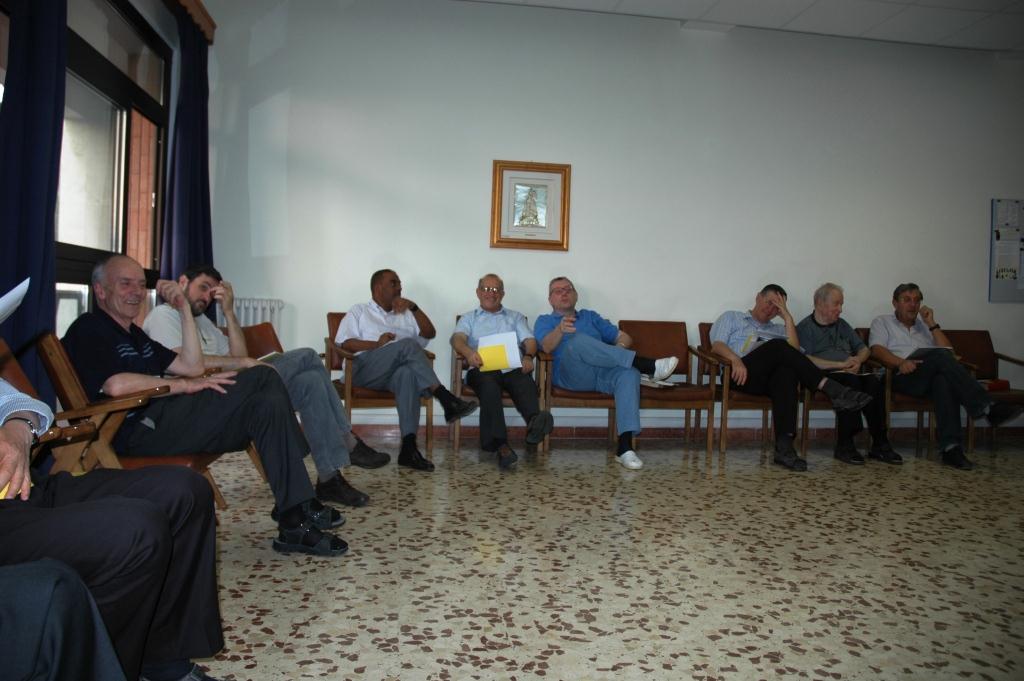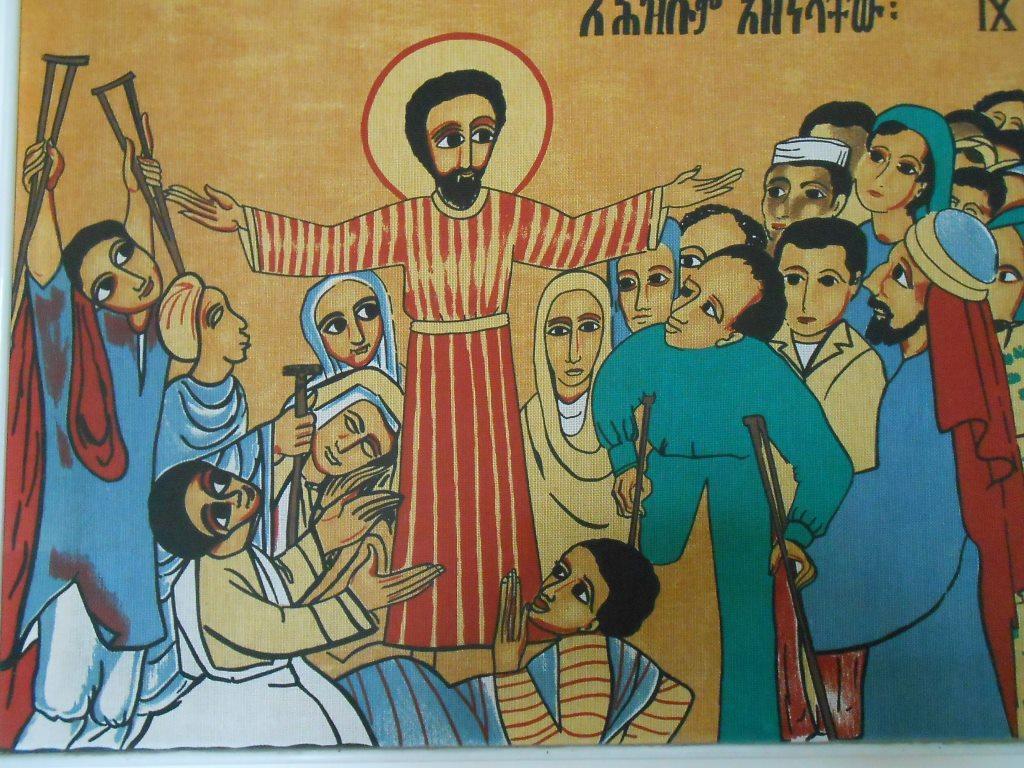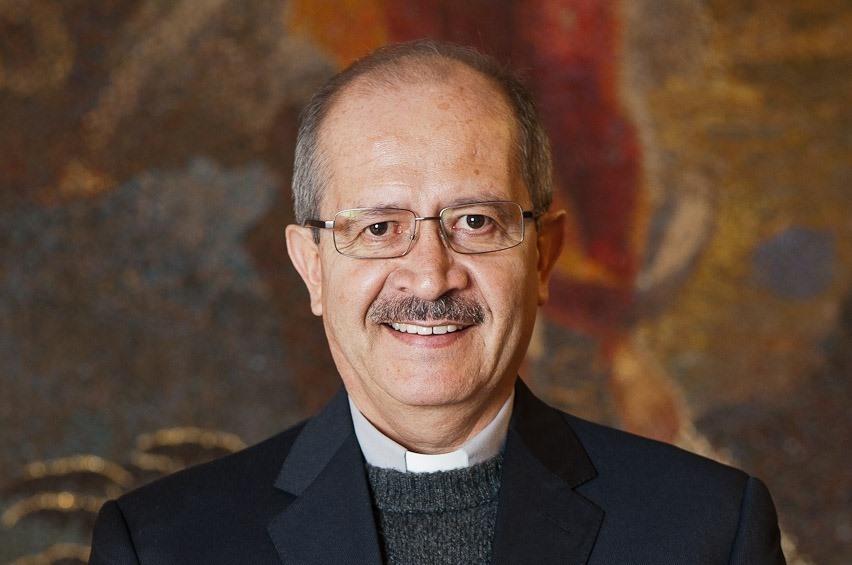Daniel Comboni
Comboni Missionaries
Institutional area
Other links
Newsletter
Rome, Tuesday, January 8, 2013
As stated at the beginning of its mandate, the General Council recalls that the theme for the On Going Formation of the confreres for the year 2013 is “Brotherhood: journeys of reconciliation” in the context of Year of the Faith. We publish below the letter of the General Council.
LETTER FROM THE GENERAL COUNCIL
BROTHERHOOD: JOURNEYS OF RECONCILIATION
“Do not let your love be a pretence, but sincerely prefer good to evil. Love each other as much as brothers should...” (Rm 12, 9-10)
Dear Confreres,
We are writing to you at the beginning of a new year invoking – in particular upon our Comboni communities scattered throughout the world – the blessing and the peace of Our Lord Jesus Christ.
“Brotherhood: journeys of reconciliation” is the theme which we, as the General Council, chose to accompany us during the whole of the year 2013, proposing for us a personal and community journey marked by conversion of heart, the indispensable means for continuing to grow towards a fraternity that is ever more complete and fruitful. “By this they will know that we are His disciples”, as the Gospel of St. John reminds us (cf. Jn, 13, 35).
This letter is meant simply to be an introduction to the chosen theme. It will be followed by five more contributions, one every two months, which will bring out its various facets and proposals.
In the first contribution, we will ask ourselves what meaning fraternity can have for us, today, in our community life. In the second we will question ourselves regarding personal reconciliation as a precondition for fraternity. Fraternity as mission and commitment to fraternity and reconciliation in a divided world (JPIC) will be the theme of the third contribution. That which follows it will present some proposals for reconciliation as they emerge from our Comboni history, mission and life as well as from the generational, sociological and cultural changes that today characterise the image of our Institute.
The final contribution will offer an outline for a retreat and/or a community penitential liturgy in which we shall endeavour to recall all that emerged from the proposed journey and that needs to be made into common prayer in an explicit request for pardon and an invitation to fraternal reconciliation. The outline, will, of course, allow for local adaptation and contextualisation.
As we propose this theme and journey to you, we cannot but mention the evangelical indications on community life from which the Rule of Life takes the fundamental themes regarding our Comboni community life. (RL 36-45).
We are very much aware that several General Chapters have taken up more than once the theme of Fraternal life in the Comboni community. We remember here, for example, the XVI General Chapter (2003) which, with an entire section of the Acts dedicated to The Comboni Community: a Gift and a Way of Life (69-96), offered us many points for reflection and ways of interpreting which are still valid and full of meaning.
Two years earlier, a Letter of the General Council stressed how, “in the context of community, we see the experience of communities which, notwithstanding the differences of age, character, formation or culture, share their lives … communities that go beyond a simple living together under the same roof and form real cenacles of apostles”. (Attention to the Person, n. 9. Letter of the GC, Rome, 2001).
The XVII General Chapter again took up the theme reminding us that “Living as brothers is a fundamental and indispensable element of our spiritual growth and missionary service. In order to reach this goal, we must devote the time and attention required” (CA ’09, n. 32).
It was that same Chapter, in fact, that suggested the theme of Fraternity to be one of the specific and annual Themes of spirituality proposed to the whole Institute (CA ’09, n. 34).
The XVII General Chapter connects the spirituality of fraternal life also to concrete acts of promotion and fraternal correction: “The practice of fraternal correction and reconciliation with God and the brothers in a climate of celebration, particularly during the high times of the liturgical year, are ideal means for evaluating and nurturing our community life”.(CA ’09, n. 32.4). Celebrations which ought to occupy a privileged place in planning the community project: “Communities should favour and cultivate times of reciprocal listening and sharing, identifying simple ways to help create a family atmosphere and a sense of belonging. In the community charters they should also plan for fraternal promotion and correction” (CA ’09, n. 143.1).
Let us accept this invitation during the Year of Faith which makes us more aware of how community life, in the name of Jesus and his Gospel, is an essential sign of our discipleship of Christ and of the building up of the coming Kingdom of God. Our commitment to community life is, in itself, an act of faith, an act that builds faith and is a witness to an efficacious proclamation of the faith, as we find underlined also in the Ratio Missionis (Rome, 2012, p. 17, 3.2.1).
Our faith teaches us that living together is our call. The Gospel shows us that Jesus chose to call his apostles and disciples as a group, a small community and a cenacle. St. Daniel Comboni wanted his missionaries to live together: “Our Missionaries, whether they are priests or laymen, live together as brothers in the same vocation …” (Writings, 1859, 2495).
The Rule of Life puts it thus: “The Comboni Missionaries gratefully welcome the gift of community life to which the Spirit of the Lord has called them through the original inspiration of the Founder… It is a visible sign of the new humanity born of the Spirit that becomes a concrete proclamation of Christ: «Let them be so perfect in unity that the world may believe that it was you who sent me»” (RL 36).
If fraternity is a great gift, it is a gift that we live marked by our human history, at once beautiful and fragile. Living together does not remove difficulties, tensions or misunderstandings. Not for nothing Paul reminds the Christian community of Ephesus: “be friends with one another, and kind, forgiving each other as readily as God forgave you in Christ” (Ep 4, 32).
Our being born as an international and inter-cultural (“catholic”) Institute is a further gift that presents us with new challenges: “The Institute which is growing rapidly internationally and inter-culturally is experiencing radical generational, social and cultural changes. This phenomenon inevitably causes tensions and a feeling of unease that require a conversion of the heart by everyone” (CA ’09, n. 53).
As an Institute we thank God for the gift of the confreres of different cultures, age, ecclesial experiences and journeys of faith who live and serve together. At the same time, being mindful of our past experiences, we are called as an Institute to humbly admit that, during our long history, there have been negative experiences of divisions, conflicts, rash judgements, episodes of intolerance and mental and cultural closure. This history and these stories may still affect our present. It was not without good reason that the last Chapter turned to the OGF commissions that they might “offer the tools needed to identify and heal the wounds present in our midst, often caused by prejudice and discrimination, and animate the Circumscriptions to organise seminars or to utilise other already existing programmes for conflict resolution” (CA ’09, n. 143.3)
Recently, South Africa, to mention a country and Church where we are present, strongly reminded us that there is no reconciliation without truth. The Christian tradition frees us from the fear of facing certain difficult and painful truths and opens us to hope and to the future, so that “by his wounds we have been healed” (cf. 1 Pt 2, 24). The wound of our common history and, within this, those of our personal history – that Jesus bore on his shoulders – have been redeemed.
It is with this spirit and these expectations that we again undertake a journey of truth and reconciliation, for a life that is new, ever more fraternal and the fruit of grace. We do this knowing that it is always as reconciled people that we live and serve the mission of God together.
“United with Mary, the Mother of Jesus, our communities invoke the Spirit Who has the power to create fraternity that radiates the joy of the Gospel, able to attract new disciples after the example of the early Christian community: «These remained faithful to the teaching of the apostles, to the brotherhood, to the breaking of bread and to the prayers» (Ac 2,42), «and the numbers of men and women who believed in the Lord increased steadily » (Ac 5,14)”(Fraternal Life in Community, 1994, 71).
Rome, 1 January, 2013
Fr. Enrique Sánchez G.
Fr. Alberto Pelucchi
Fr. Antonio Villarino R.
Fr. Tesfaye Tadesse G.
Bro. Daniele G. Giusti




